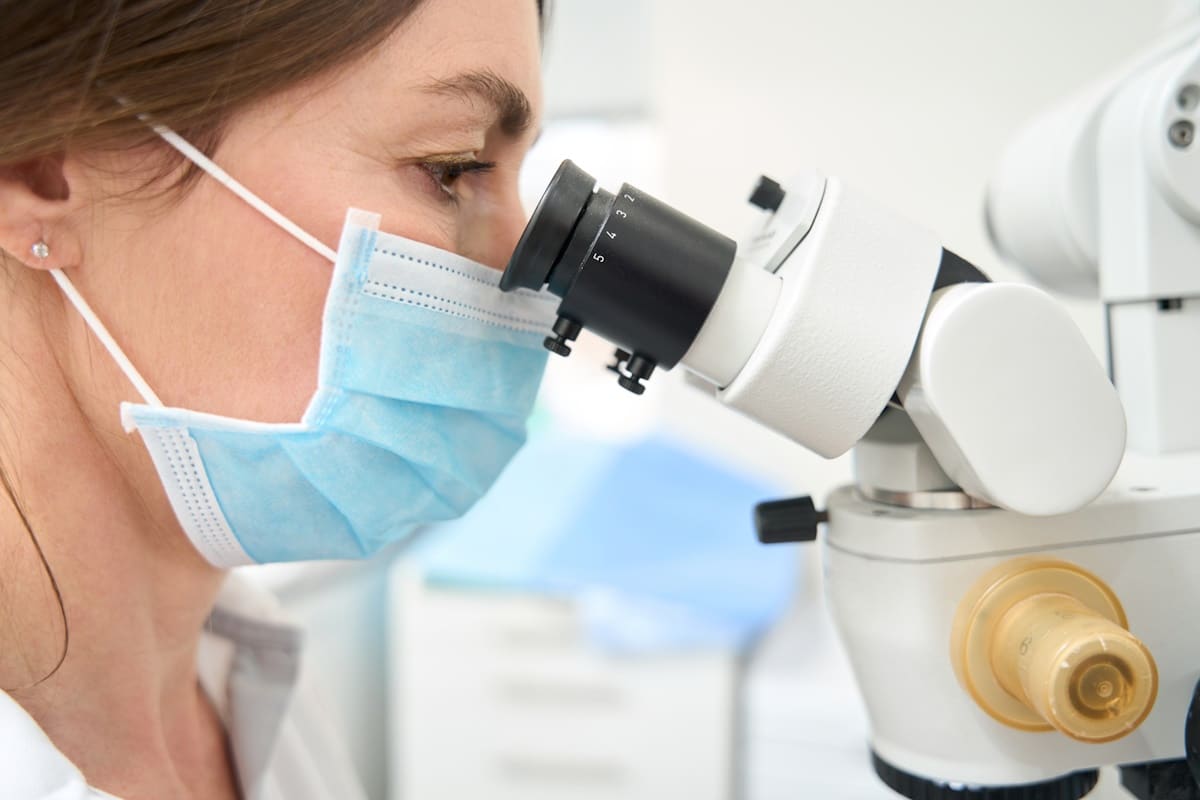Prostate biopsies—though uncommonly talked about—are essential procedures in diagnosing prostate cancer. However, concerns about infections post-biopsy have lingered. But how much of a risk is there for infection from a prostate biopsy? Recent research has revealed that confirmed infections after a prostate biopsy are rare, affecting fewer than 2% of men, regardless of the biopsy method used.
What is a prostate biopsy?
Prostate biopsy is a procedure in which small tissue samples are extracted from a man’s prostate gland using a hollow needle. These samples are then examined for the possibility of prostate cancer. Typically, a prostate biopsy is recommended when the result of a PSA blood test is high.
In the United States, doctors typically perform a transrectal ultrasound-guided biopsy (TRUS). Picture this: a biopsy needle is carefully guided through the rectum and into the prostate gland while being monitored with an ultrasound machine. However, since the needle passes through the rectum, there’s a small risk of introducing fecal bacteria into the prostate or bloodstream. To combat this, doctors usually prescribe antibiotics before the procedure.
On the flip side, there’s the transperitoneal prostate (TP) biopsy. Instead of traversing the rectum, the biopsy needle goes through the peritoneum—the area between the anus and the base of the scrotum.
Antibiotics aren’t typically needed here. This approach not only sidesteps antibiotic resistance concerns but also has lower infection risks, which is why European medical guidelines favor it.
Study goals and methodology
What does research recent say? Scientists at Albany Medical Center in New York embarked on a groundbreaking study published in the Journal of Urology to compare infection risks associated with TRUS and TP biopsies. They recruited 718 men and randomly assigned them to undergo either a TRUS or TP biopsy. The majority of TRUS patients received a one-day course of antibiotics before the procedure.
After the biopsies, the men were monitored for any signs of infection or complications. The results? Only 1.1% of TRUS patients and 1.4% of TP patients had confirmed infections, with slightly higher rates when including “possible” infections. Fever was the most common issue, reported by six participants in each group, while urinary retention occurred in one participant from each group.
However, the study had its limitations. The participants were mostly white, so the findings might not fully apply to men from other racial or ethnic backgrounds. Plus, since all the biopsies were done at a single institution, we can’t be sure if the results hold true elsewhere.
Nonetheless, the study provides reassuring evidence that both TRUS and TP biopsies are safe options for clinical practice.
Takeaway message
In conclusion, the research suggests that TP biopsies without antibiotics are just as safe and effective as TRUS biopsies with antibiotics. This helps dispel the notion that TP biopsies are superior, as some previously thought. Moving forward, it’ll be crucial to see if other studies corroborate these findings and whether there are any differences between the two methods in detecting cancer.
Dr. David Samadi is the Director of Men’s Health and Urologic Oncology at St. Francis Hospital in Long Island. He’s a renowned and highly successful board certified Urologic Oncologist Expert and Robotic Surgeon in New York City, regarded as one of the leading prostate surgeons in the U.S., with a vast expertise in prostate cancer treatment and Robotic-Assisted Laparoscopic Prostatectomy. Dr. Samadi is a medical contributor to NewsMax TV and is also the author of The Ultimate MANual, Dr. Samadi’s Guide to Men’s Health and Wellness, available online both on Amazon and Barnes & Noble. Visit Dr. Samadi’s websites at robotic oncolo gy and prostate cancer 911.


